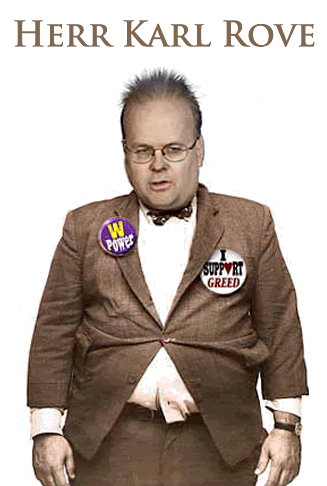COMMENTARY
So What's the Story on Bob Novak?
His decision to play it cagey in the Plame case is helping no one.
By Jonathan Turley, Jonathan Turley is a professor at George Washington University Law School and has represented individuals asserting the journalistic privilege.
Columnist Robert Novak has made a career for himself as a human flamethrower for conservative causes. Yet, even Novak appears surprised at the mounting cost of his disclosure in 2003 of the identity of CIA operative Valerie Plame.
It was classic Novak: a hatchet job directed not at Plame, but at her husband, former Ambassador Joseph C. Wilson IV. The firestorm that erupted has consumed millions of dollars in investigation and litigation costs and has wreaked havoc with the career not just of Plame (who had to leave the CIA) but of two reporters who were hauled into court and threatened with prison.
Novak's original intention, it seems, was to publicly damage Wilson, who had embarrassed President Bush by showing that he relied on false information to justify the Iraq war. Although Novak admits that he was asked not to publish Plame's name by a CIA official, he insists that he did not realize that he might be putting her in danger. Nevertheless, he showed little concern for safety or propriety until after the controversy erupted.
It is a far cry from the first recorded fight over anonymous sources: In 1848, New York Herald reporter John Nugent refused to give up his source for a copy of the secret Treaty of Guadalupe-Hidalgo that ended the Mexican-American War.
It goes without saying that Novak is no Nugent. After all, Nugent's source was a government official who revealed the controversial elements of a secret treaty. (Many still believe that the leaker was James Buchanan, the secretary of State and future president.) Conversely, Novak's piece was based on dirt received from anonymous government officials seeking to discredit a whistle-blower.
Novak insists that he was merely publishing a newsworthy tip from "two senior administration officials;" he suggests that it was important to point out that Wilson's wife was a CIA agent in order to explain why Wilson had been sent on a mission to Niger by the Bush administration. But whatever the value of this information, Novak could have ended it there. Instead, he chose to name Wilson's wife.
The disclosure of the name — in addition to violating the law against revealing the names of covert personnel — served no apparent purpose beyond that of retaliation.
Here's another difference between Novak and Nugent: Nugent allowed himself to be held in contempt rather than reveal his source. What Novak has done or failed to do as a journalist remains shielded in mystery because Novak refuses to talk. Traditionally, journalists have publicly explained their status and their position in such controversies — as have various other reporters in the Plame affair. Knowing where Novak stands in this case would be important because the other journalists involved — especially Judith Miller of the New York Times — need to know his position so they can form a unified front against government threats.
Over the course of the investigation into the matter, special prosecutor Patrick Fitzgerald has gone after journalists such as Miller with a fury — winning findings of contempt against them for refusing to give up their sources.
Yet, there has been a conspicuous absence of any similar effort against Novak. This has led to speculation that either Novak has been given special treatment by a Republican prosecutor, or he has revealed his sources, or his sources have revealed themselves to the prosecutors.
On Wednesday, Novak appeared on CNN's "Inside Politics" to deflect growing criticism of his silence. "If anyone thinks they're going to jail because of me, it's madness." This is, of course, is technically true. Miller may go to jail for her principled refusal to sacrifice her sources.
In the interview, Novak refused to answer even the most basic question, such as whether "in general … you cooperated with investigators in the case." Novak insisted his lawyer had told him not to answer "until this case is finished." His reliance on his lawyer's advice is a rather feeble and perplexing defense.
Yes, lawyers often prefer that their clients remain quiet under the theory that what you don't say can't be used against you. But Novak is not some button-man for the Gotti family. He is a self-described journalist who started a firestorm with a politically engineered attack piece on a civil servant for which another reporter is in danger of going to jail. Novak himself would never accept the "my lawyer did it" defense from a public figure. At the end of the day, it is Novak's decision whether to take such advice or ignore it.
